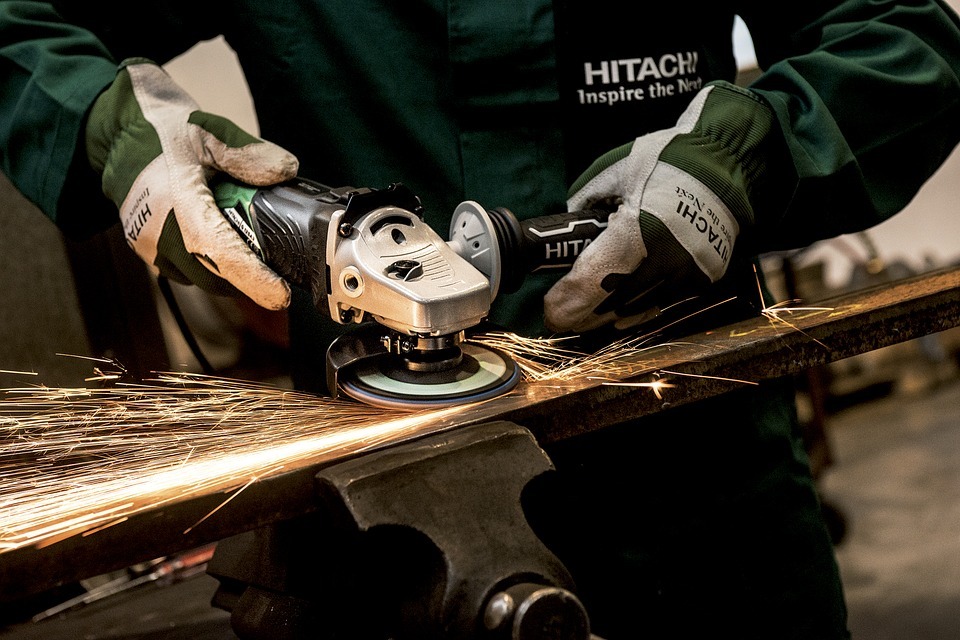If you keep large power tools on hand for your DIY projects, you’re going to want to take the necessary steps to maintain them properly. Without proper care and maintenance, large power tools will begin to corrode and rust, which will eventually cause them to stop working.
Maintaining your power tools regularly will make them last as long as possible. With the right amount of care, some power tools will last decades.
Here are five essential steps to take if you want your power tools to last.
Sharpen blades regularly
Over time, the blades of your large power tools will start to dull. While this is to be expected, it still isn’t a good idea to leave your blades dull. Dull blades not as efficient as a sharp blade. This not only makes your projects look bad, but it also means your power tool has to work harder to get the job done. This can eventually lead to a shortened lifespan for your power tool.
Whenever you see or feel your blades getting dull, sharpen or replace them. There are some blades, such as circular saw blades, that you can sharpen yourself with a file. For other blades, such as jigsaw blades, it is easier to just replace them.
Clean them after every use
If you’re working on a project, it can be easy to use your sawmill or your grinder, set it down, and then forget about it until you need them for another project. The problem with this is that it leaves dirt and grime behind on your tools. A little dirt and grime aren’t going to hurt your tools in the short-term, but it will eventually lead to corroding.
Get in the habit of wiping down your tools with a soft, dry cloth after every use to get rid of any excess debris. It is also a good idea to give them a deep clean every so often by blowing out motors and other crevices with an air compressor.
Lubricate any moving parts
If your large power tool has a lot of moving parts, such as this Shop Fox drill press, it is necessary to lubricate the moving parts. Lubricating your power tools helps prevent overheating, corrosion, and chafing. It can also repel water and rust.
Most of the time, you will be able to lubricate your power tools with machine oil. Machine oil is specifically designed to reduce friction between moving parts to prevent corrosion. There are some types of tools, however, that might need other types of lubricate. Before lubricating your power tools, always check your user’s manual. This should provide information on what type of lubricant to use, what parts to lubricate, and how often you should lubricate.
Check for damage
Get in the habit of regularly checking your power tools for damage. Glance over them before you use them. If you catch a potential problem early enough, you may be able to prevent the problem from getting worse. Some problems, such as cracked housing or a frayed power cord, require professional repair.
Other problems, such as loose bolts or light rust, might be something you can fix at home. If you catch rust early enough, you can remove it with a little WD-40, a steel wool pad, and a lot of elbow grease. If you spot something wrong with a tool, always check your user’s manual or talk to a professional to figure out what steps you need to take.
Store them properly
Storing your tools in a clean, dry place helps prevent them from getting rusted or corroded. Even leaving a power tool in a damp place for a few days can sometimes result in a light layer of rust. Moisture is never a good thing when it comes to power tools.
If your power tool came in some sort of storage shell, that is the best place to keep it. Throwing a silica gel pack into the storage container can help remove moisture. Other good places to store power tools include in your garage or your basement, as long as there is no moisture. If the garage or basement where you’re storing your tools seems damp, you should invest in a dehumidifier.
Final thoughts
A good power tool can be expensive to buy and replace. If you don’t want to dish out money every few years for new tools, use the tips above can help make your power tools last as long as possible. And remember—the earlier you catch any potential problems with your tools, the easier it will be to repair them.

